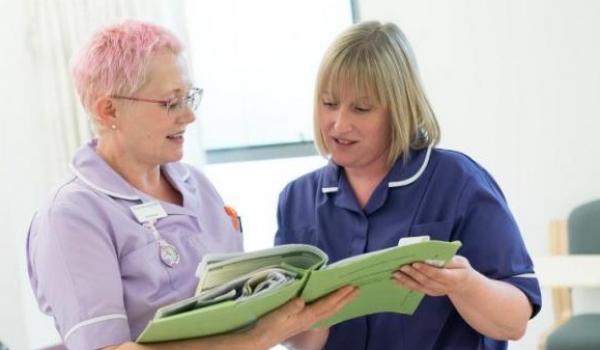Today the ovarian cancer audit feasibility pilot published its latest findings on the variation in ovarian cancer treatment across England, for women diagnosed with the disease between 2016 and 2018. The new report – using data from Public Health England and the National Cancer Registry – revealed significant regional differences in access to ovarian cancer treatment (particularly surgery) across the country.
We take a closer look at the findings and what our next steps are to help every woman facing a diagnosis. If you’re struggling with any of the themes mentioned here, please call our support line.
Key findings
The report revealed four in ten women with ovarian cancer didn't receive surgery, despite it being the treatment which offers the best long-term prognosis for women with the disease. A worrying one in five women diagnosed with ovarian cancer received no ovarian cancer treatment at all.
The research also uncovered a drop in access to treatments for older women across the country, with 37 per cent of women above the age of 70 not receiving any treatment, rising to over 60 per cent for those aged 80 and over.
A postcode lottery in access to treatment
Women with a diagnosis stand a much better chance of receiving treatment in some areas of the country compared to other areas.
The report found that the probability of receiving any treatment for their cancer varies significantly by area in England, even after taking into account factors that might explain differences in local treatment practices – such as the age of the patients treated and how advanced their cancer was.
What this means for women with ovarian cancer
While the report didn't investigate the link between treatments given and outcomes, it did highlight that the areas of the country where women with ovarian cancer were more likely to receive treatment generally had higher survival rates. The relationship between access to treatment and survival may be particularly pronounced for surgery – a key treatment option for women with ovarian cancer. More research is now needed to establish the reasons why survival rates for ovarian cancer are higher in some areas than others, and how far regional differences in treatment are responsible.
What are we doing to help?
The new data released today marks the second instalment of a wider pilot, jointly funded by The British Gynaecological Cancer Society, Ovarian Cancer Action and Target Ovarian Cancer, delivered by analysts at the National Cancer Registration and Analysis Service (NCRAS), part of Public Health England. The bodies have joined forces to map ovarian cancer diagnosis, treatment and survival across England, in a bid to win government funding for a continuation of the clinical audit, to help more women survive ovarian cancer.
Read more about the ovarian cancer audit's latest findings or explore the audit's first findings from January 2020.

Chief Executive of Target Ovarian Cancer, Annwen Jones OBE, said:
Our audit has identified a real opportunity to improve ovarian cancer survival rates in England as we come out of this pandemic. Together with the government, we must seize it. It’s totally unacceptable that some women are being denied the most effective treatment options based on anything, let alone postcode or age, and these inequalities must be addressed.
President of the British Gynaecological Cancer Society, Professor Sudha Sundar, said:
We now need a fully funded audit to identify and rectify what factors are responsible for this worrying variation in anticancer treatment received by women across England. We know that these factors can be organisational, for example availability of theatre lists or Intensive care beds; we will be urging our members to carefully look at this data and discuss this with their hospital trusts.
Chief Executive of Ovarian Cancer Action, Cary Wakefield, said:
Neither your age nor location should decide your chance of survival if you are diagnosed with ovarian cancer. Our audit is the first step in addressing the health inequalities women across England face, so we can begin to dismantle them.



